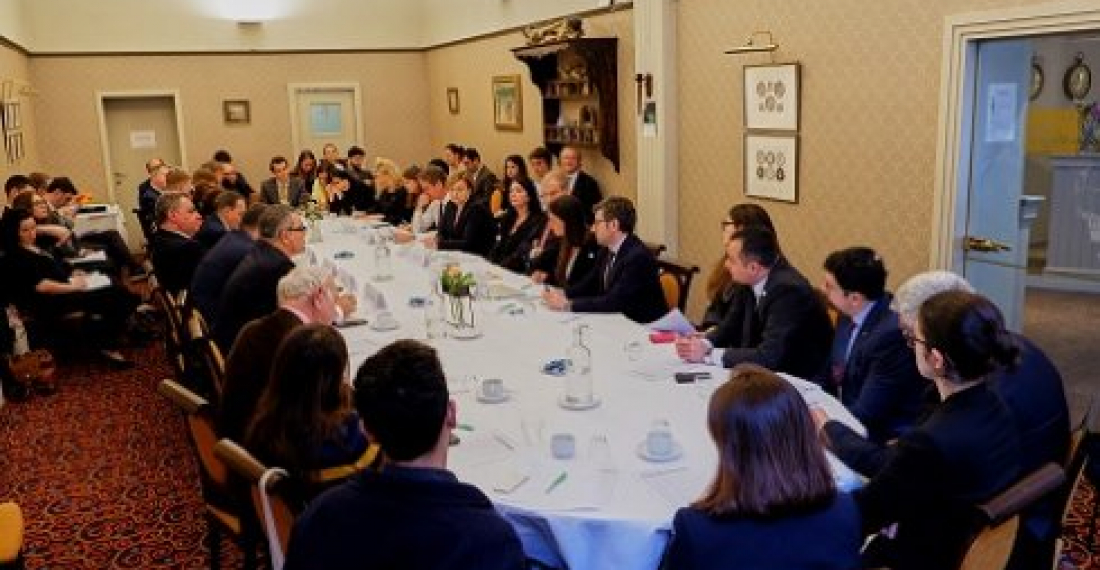The partnership between Azerbaijan, Georgia and Turkey has been successful and long lasting because it is based on strategic pragmatism, and is not aimed against any other third country. This was stated at a round table discussion on the theme "Regional and sub-regional in the EU neighbourhood: the Azerbaijan-Georgia-Turkey partnership" organised by LINKS Europe and AYAPE held in Brussels on Thursday (5 March).
The meeting was addressed by Mr Lasha Darsalia, the Deputy Foreign Minister of Georgia who said that the Azerbaijan - Georgia - Turkey partnership was a framework with a positive agenda and was not directed against anyone. Georgia co-operated with Azerbaijan and Turkey bilaterally, but also with both of them multilaterally, particularly in the promotion of the East-West corridor. Darsalia said that Georgia's two main foreign policy objectives were Euro-Atlantic integration and the restoration of territorial integrity, and the trilateral co-operation was also important to achieve these objectives.
The Heads of Missions of the three countries to the European Union, Ambassador Mehmet Kemal Bozay of Turkey, Ambassador Fuad Isgandarov of Azerbaijan and Ambassador Dr Nathalie Sabanadze of Georgia presented the approach of their respective countries to the framework of trilateral co-operation, positively assessing the work that has been done within this framework. Speakers also referred to how the European Union can engage with the trilateral co-operation, on areas such as connectivity, energy climate change and innovation.
Other speakers at the event included Dr Dennis Sammut, Amanda Paul, Mathew Bryza and Dr Giulia Preiz-Oltremont.
At the start of the meeting there were also welcoming remarks by Andris Ameriks MEP, and Ilhan Kyuchyuk MEP who welcomed participants and emphasised the importance of the topic of the meeting for the European Union.
source: commonspace.eu
photo: Participats at a round table meeting held in Brussels on 5 March 2020, organised by LINKS Europe and AYAPE.






